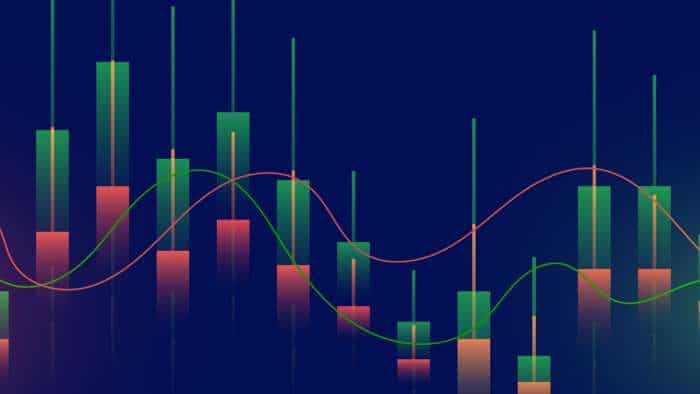Global financial markets on edge on weak US cues

Financial markets were on edge on Friday as weak U.S. economic data added to fears of a global slowdown and pushed investors to bet the Federal Reserve could reverse policy and start cutting interest rates before the end of this year. But nerves were soothed somewhat by news that the United States and China would hold vice-ministerial level talks next week on their trade dispute, with the Chinese blue-chip index turning 0.4 percent higher.
U.S. stock futures, which had slipped in early Asian trade, also reversed early losses. E-Minis for the S&P 500 edged up 0.1 percent while Nasdaq futures climbed 0.2 percent.
Japanese shares skidded on their first trading day of the year on Friday, with the Nikkei spiralling about 3.6 percent lower on growth worries and a sharp jump in the yen.
MSCI`s index of Asia-Pacific shares outside Japan dipped 0.1 percent lower to near two-month lows, weighed by a drop of about 1 percent in Australian shares.
Fears that the Sino-U.S. trade war would drag down world growth roiled risk-sensitive assets in 2018, driving a surge in volatility and sending major stock markets deep into the red.
Analysts now expect the two economic giants to find some common ground in their dispute, with added impetus possibly coming from a run of disappointing data and weak stock market on both sides. However, there are less than two months left in a short negotiating window.
Data this week showed a marked loss of momentum in the world`s two largest economies.
Thursday`s survey data from the Institute for Supply Management (ISM) showed U.S. factory activity slowed more than expected in December.
The dismal ISM report came after Chinese data on Monday showed its manufacturing activity contracted in December for the first time in more than two years.
Adding to the gloom, Apple Inc cut its revenue forecast on Wednesday for the first time in nearly 12 years, blaming weaker iPhone sales in China. Its shares crashed nearly 10 percent overnight.
"This is more proof, if needed, that U.S. President (Donald) Trump`s trade actions against China are now hurting the U.S. as much as they are China; rather than being, as Trump would have us belief, a zero sum game where the U.S. takes the spoils at all others` expense," said Ray Attrill, head of forex strategy at National Australia Bank.
There is "more reason to think a Sino-US trade deal is in the offing in coming weeks."
The spectre of a deep economic downturn in the United States, or even a recession, spooked global investors who flocked away from risky equities to the safety of bonds.
TIGHTENING CYCLE ENDS?
Investors had expected the U.S. Federal Reserve to stay on its tightening path after three hikes last year, but the trade war and recent disappointing data have put those expectations to rest.
Investors are now fully pricing in a rate cut to 2.00-2.25 percent by April next year.
The December Fed funds contract implies a cash rate of 2.23 percent, below the current 2.25-2.50 percent and expectations of 3 percent just a couple of months ago.
In response, U.S. Treasuries rallied with yields on two-year paper sinking below 2.4 percent to reach parity with the federal funds effective rate for the first time since 2008.
Three- and five-year yields were even lower, an inversion that has sometimes heralded recessions in the past.
Yields on 10-year benchmark paper dropped to 2.55 percent overnight, a staggering turnaround from the highs of 3.25 percent seen as recently as November.
The falls kept the dollar on the defensive. The greenback plumbed a more than nine-month low of 105.25 against the safe-haven yen on Thursday, driven by technical factors amid thin holiday trade.
It has fallen more than 2 percent so far this week, the biggest weekly loss since last February, and was last at 107.93.
"The ISM has a long track-record and big moves often prove to be meaningful. The December drop therefore gives pause, even to us economic optimists," said Michelle Girard, U.S. economist at RBS.
Watch this Zee Business tweet video:
#NewsImpact | पूजा त्रिपाठी से जानते हैं कि आज किन ख़बरों के चलते रिलायंस कम्युनिकेशंस और FMCG सेक्टर के शेयर रह सकते हैं एक्शन में।@AnilSinghviZEE @poojat_0211 @deepaliranaa #stockstowatch #stocksinnews #FridayDressingOnZee pic.twitter.com/GPX1ChH4ST
— Zee Business (@ZeeBusiness) January 4, 2019
"Now...a closely-watched indicator is flashing yellow, putting ourselves, and likely the Fed, on higher alert."
Concerns about a U.S. recession battered Wall Street overnight, with the Dow skidding 2.8 percent, the S&P 500 down
2.5 percent and Nasdaq losing more than 3 percent.
Keeping with the risk-off theme, gold hit a 6-1/2-month peak of $1,298.42 an ounce on Friday.
U.S. light crude slid 15 cents to $46.94 a barrel but held slightly above a 1-1/2 year trough touched just last month. Brent slipped 27 cents to $55.68.
Get Latest Business News, Stock Market Updates and Videos; Check your tax outgo through Income Tax Calculator and save money through our Personal Finance coverage. Check Business Breaking News Live on Zee Business Twitter and Facebook. Subscribe on YouTube.
RECOMMENDED STORIES

Power of Compounding: In how many years, investors can achieve Rs 6.5 cr corpus with monthly salaries of Rs 20,000, Rs 25,000, and Rs 30,000?

Hybrid Mutual Funds: Rs 50,000 one-time investment in 3 schemes has grown to at least Rs 1.54 lakh in 5 years; see list

18x15x12 SIP Formula: In how many years, Rs 15,000 monthly investment can grow to Rs 1,14,00,000 corpus; know calculations
08:52 AM IST










 Final Trade: Sensex rises 326 points, Nifty climbs 107 points; IT stocks lead gains
Final Trade: Sensex rises 326 points, Nifty climbs 107 points; IT stocks lead gains Zomato set to debut in Sensex, replacing JSW Steel
Zomato set to debut in Sensex, replacing JSW Steel Hamps Bio shares debut at 90% premium on BSE SME platform
Hamps Bio shares debut at 90% premium on BSE SME platform Traders' Diary: Buy, sell or hold strategy on Piramal Pharma, Vedanta, Thermax, Indus Tower, and other top stocks today
Traders' Diary: Buy, sell or hold strategy on Piramal Pharma, Vedanta, Thermax, Indus Tower, and other top stocks today Swiggy shares rise nearly 2% after Axis Capital initiates ‘buy’ rating
Swiggy shares rise nearly 2% after Axis Capital initiates ‘buy’ rating